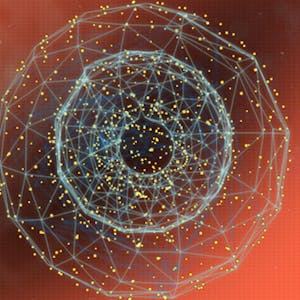Table of Contents
Best Cluster Analysis Courses 2022
Cluster Analysis in Data Mining
Discover the basic concepts of cluster analysis, and then study a set of typical clustering methodologies, algorithms, and applications. This includes partitioning methods such as k-means, hierarchical methods such as BIRCH, and density-based methods such as DBSCAN/OPTICS. Moreover, learn methods for clustering validation and evaluation of clustering quality. Finally, see examples of cluster analysis in applications.
Cluster Analysis and Unsupervised Machine Learning in Python
Cluster analysis is a staple of unsupervised machine learning and data science.
In this course we are first going to talk about clustering. This is where instead of training on labels, we try to create our own labels! We’ll do this by grouping together data that looks alike.
There are 2 methods of clustering we’ll talk about: k-means clustering and hierarchical clustering.
Next, because in machine learning we like to talk about probability distributions, we’ll go into Gaussian mixture models and kernel density estimation, where we talk about how to “learn” the probability distribution of a set of data.
Cluster Analysis & Unsupervised Machine Learning in R
This course also covers all the main aspects of practical and highly applied data science related to unsupervised machine learning and clustering techniques. Thus, if you take this course, you will save lots of time & money on other expensive materials in the R based data science domain.
In this age of big data, companies across the globe use R and Google Cloud Computing Services to analyze big volumes of data for business and research. By becoming proficient in unsupervised learning in R, you can give your company a competitive edge and boost your career to the next level. In addition, you will have a chance to test the power of cloud computing with Google services (i.e. Earth Engine) for a real-world application of unsupervised K-means learning for mapping applications. You will:
Your complete guide to unsupervised learning and clustering using R-programming language
It covers both theoretical background of UNSUPERVISED MACHINE LERANING as well as practical examples in R and R-Studio
Fully understand the basics of Machine Learning, Cluster Analysis & Unsupervised Machine Learning
Highly practical data science examples related to unsupervised machine learning and clustering
Be Able To Harness The Power Of R For Practical Data Science
You will have a glimpse on the power of cloud computimg with Google services (i.e. Earth Engine)
It covers a real-world application of K-means clustering for mapping tasks in UAE
Improve your R-programming and JavaScript coding skills
Implement Unsupervised Clustering Techniques Such As k-means Clustering and Hierarchical Clustering
Apply your newly learned skills to your independent project
Evaluate Model Performance & Learn The Best Practices For Evaluating Machine Learning Model Accuracy
Learn R-programming from scratch: R crash course is included that you could start R-programming for machine learning
Best Cluster Analysis Books 2022
Practical Guide to Cluster Analysis in R: Unsupervised Machine Learning
- Kassambara, Mr. Alboukadel (Author)
- English (Publication Language)
- 188 Pages - 01/09/2017 (Publication Date) - CreateSpace Independent Publishing Platform (Publisher)
Although there are several good books on unsupervised machine learning, we felt that many of them are too theoretical. This book provides practical guide to cluster analysis, elegant visualization and interpretation. It contains 5 parts. Part I provides a quick introduction to R and presents required R packages, as well as, data formats and dissimilarity measures for cluster analysis and visualization. Part II covers partitioning clustering methods, which subdivide the data sets into a set of k groups, where k is the number of groups pre-specified by the analyst. Partitioning clustering approaches include: K-means, K-Medoids (PAM) and CLARA algorithms.
In Part III, we consider hierarchical clustering method, which is an alternative approach to partitioning clustering. The result of hierarchical clustering is a tree-based representation of the objects called dendrogram. In this part, we describe how to compute, visualize, interpret and compare dendrograms. Part IV describes clustering validation and evaluation strategies, which consists of measuring the goodness of clustering results. Among the chapters covered here, there are: Assessing clustering tendency, Determining the optimal number of clusters, Cluster validation statistics, Choosing the best clustering algorithms and Computing p-value for hierarchical clustering. Part V presents advanced clustering methods, including: Hierarchical k-means clustering, Fuzzy clustering, Model-based clustering and Density-based clustering.
Cluster Analysis: 2014 Edition (Statistical Associates Blue Book Series 24)
- Amazon Kindle Edition
- Garson, G. David (Author)
- English (Publication Language)
- Hardcover Book
- Rokach, Lior (Author)
- English (Publication Language)
- Hardcover Book
- Everitt, Brian S. (Author)
- English (Publication Language)
- English (Publication Language)
- 753 Pages - 06/30/2020 (Publication Date) - Routledge (Publisher)
- Used Book in Good Condition
- Aldenderfer, Mark S. (Author)
- English (Publication Language)
- Kassambara, Mr. Alboukadel (Author)
- English (Publication Language)
- 188 Pages - 01/09/2017 (Publication Date) - CreateSpace Independent Publishing Platform (Publisher)
- Scitovski, Rudolf (Author)
- English (Publication Language)
- 284 Pages - 07/24/2022 (Publication Date) - Springer (Publisher)
- Bezdek, James C. (Author)
- English (Publication Language)
- 516 Pages - 10/21/2024 (Publication Date) - River Publishers (Publisher)
- Used Book in Good Condition
- Hardcover Book
- Abonyi, János (Author)
- Used Book in Good Condition
- Santoy PhD, Claude (Author)
- English (Publication Language)
- Hardcover Book
- Helmuth Spath (Author)
- English (Publication Language)













